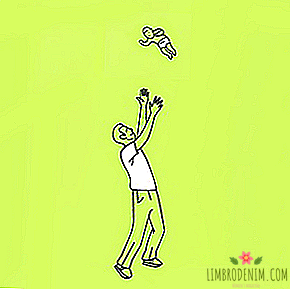Nasrin Sotuda: How did an Iranian human rights activist end up in jail

Dmitry Kurkin
Tehran's Revolutionary Court Recognizes Iranian Human Rights Defender Nasrin Sotuda was guilty of "spreading anti-state propaganda," "espionage" and "insulting the highest leader of the Islamic Republic," Ayatollah Ali Khamenei. Iranian State News Agency IRNA reports that Sotud was sentenced to seven years in prison; however, her husband, an activist, Reza Handan, claims that the verdict read out by the judge refers to the “decades” of the prison (the sources state that this is thirty-eight years) and punishment with 148 lashes. By the time the sentence was announced, Sotuda was already serving a five-year prison term.
Human rights organizations have already expressed their indignation at the verdict: Amnesty International representatives called him "shocking" and called for the immediate release of Sotud. International observers also note that the current one, which is unusually harsh even by Iran’s standards, indicates a change in the political climate and the balance of power within the country.
A practicing law since the mid-nineties, Nasrin Sotuda is one of the most active Iranian human rights defenders. For many years, she defended the rights of women and children subjected to domestic violence and sexual abuse, and campaigned for the abolition of the death penalty in Iran. In addition, she represented in court many opposition politicians, journalists and activists, including women, who protested against the obligatory wearing of the hijab.
In some cases, Sotuda was perhaps the only specialist in the country whose defendants could count on legal assistance (among whom was her fellow human rights defender, Nobel Peace Prize laureate Shirin Ebadi). The people who know Sotuda noted both her fearlessness and her absolute calmness at court hearings. “I have to stay calm in order to conduct business professionally and effectively. Losing my temper, I lose control of my business,” Nasrin herself said in an interview in 2007.
In 2010, the authorities for the first time accused Sotud of "spreading propaganda" and "harming national security." Then she was sentenced to eleven years in prison, a twenty-year ban on legal activities and a ban on leaving the country (after the appeal, the term of imprisonment was reduced to six years, the ban on the profession - to ten). During the first imprisonment, the human rights activist and director Jafar Panahi, who was arrested with her, was awarded the Sakharov Prize for Freedom of Thought. Sotuda twice went on a hunger strike, protesting against the fact that she was not allowed to communicate with her family. The second hunger strike, which lasted forty-nine days, hit her health particularly hard: Reza Handan reported that his wife had problems with her vision and coordination.
People who know Sotuda noted her fearlessness and absolute calmness at court hearings.
In September 2013, Sotuda, together with another ten political prisoners, was released from prison without an official explanation of the reasons. A sudden amnesty happened a few days before a speech at the UN by Hassan Rougani, shortly before being elected president of Iran and trying to establish a dialogue with the West.
In 2018 mass arrests took place in Iran: according to Amnesty International, the police took into custody about seven thousand dissidents - members of religious minorities, trade union leaders, eco-activists and human rights activists. Among the latter were predictably Sotuda, who defended activists who opposed the mandatory wearing of the hijab, and Hamdan. Both were charged with various "state security offenses"; Hamdan was sentenced to six years, Sotuda - to five.
Observers also note that at the beginning of March, shortly before the sentence of Sotud, the associate and possible successor of Ayatollah Khamenei, eighty-year-old Ibrahim Raisi, who was called responsible for the mass executions of political prisoners in 1988, was appointed head of Iran’s judicial power. In 2017, he ran for president, but lost the election to current President Rouhani. The current appointment of Raisi may indicate an attempt by religious leaders to weaken the influence of Rouhani and at the same time suppress anticlerical oppositionists. Therefore, to alleviate the sentences of Sotuda and her fellow human rights activists, so far, alas, we cannot count.
As for corporal punishment, their use is still widespread in the Islamic Republic. And this is not only about lashes, which, according to Iranian law, punish more than a hundred different offenses - including those that are traditionally considered administrative, like drinking alcohol in public places (up to a hundred strokes). Cruel punishments such as cutting off fingers and toes, as well as blinding, are still in progress. In the number of executed executions, Iran in recent years is allegedly inferior only to China.
PHOTO:Arash Ashourinia / Tass




